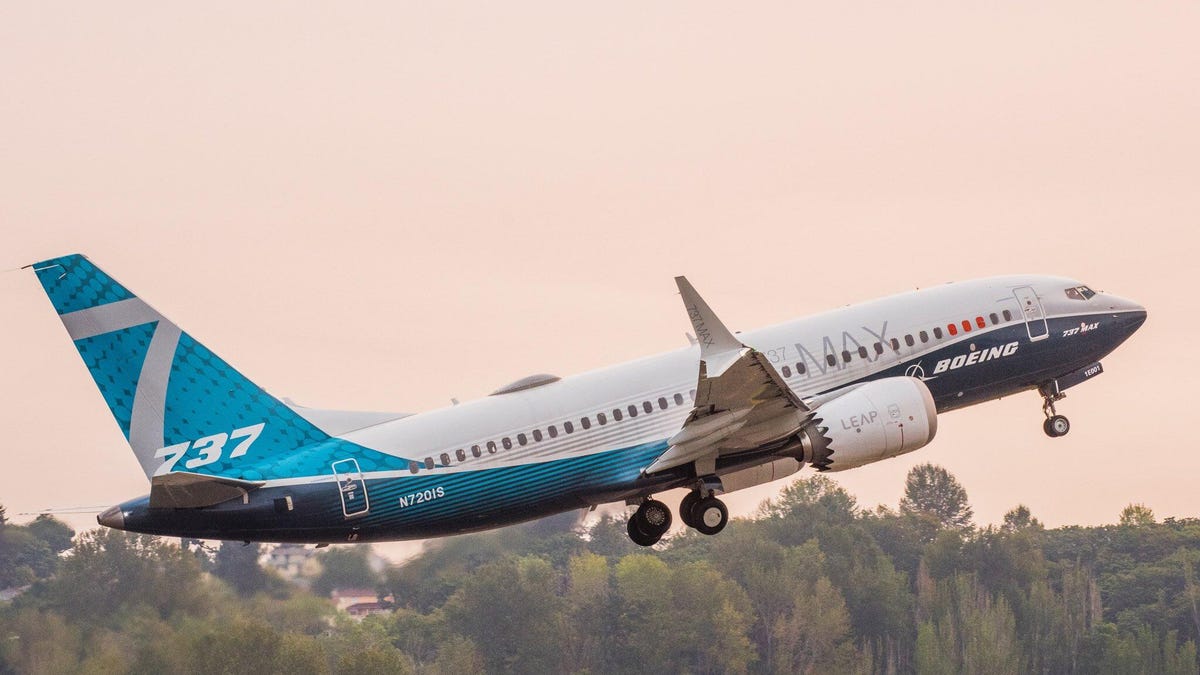Boeing agrees to pay $2.5 billion for role in 737 Max crashes
The company was charged with defrauding the Federal Aviation Administration over its evaluation of the 737 Max airplane, leading to two catastrophic crashes.

Two years after a pair of 737 Max crashes, Boeing has agreed to a sizable settlement.
Boeing entered into a deferred prosecution agreement with the Department of Justice on Thursday after being charged in relation to a conspiracy to defraud the Federal Aviation Administration with regard to its 737 Max airplane. Under the terms of the agreement, Boeing will pay more than $2.5 billion in criminal penalties, compensation payments and the establishment of a $500 million beneficiaries fund for the 346 passengers who died during two 737 Max crashes in 2018 and 2019.
"The tragic crashes of Lion Air Flight 610 and Ethiopian Airlines Flight 302 exposed fraudulent and deceptive conduct by employees of one of the world's leading commercial airplane manufacturers," said David P. Burns, acting assistant attorney general of the Justice Department's Criminal Division. "Boeing's employees chose the path of profit over candor by concealing material information from the FAA concerning the operation of its 737 Max airplane and engaging in an effort to cover up their deception."
Citing "misleading statements, half-truths, and omissions" that impeded the government's ability to ensure the safety of the flying public, Justice officials hold that two of Boeing's technical pilots deceived the FAA about an important aircraft part called the Maneuvering Characteristics Augmentation System, or MCAS, that impacted the airplane's flight control system. As a result, information about that crucial system failed to make it into any of the manuals or training materials used by US-based airlines.
After Lion Air Flight 610 crashed into Indonesia's Java Sea shortly after takeoff in October 2018, killing everyone aboard, the FAA determined that the MCAS had activated during flight and may have played a role, but also that Boeing's technical pilots continued to deceive both the FAA and Boeing about prior changes to the MCAS. Five months later, in March 2019, Ethiopian Airlines Flight 302 crashed shortly after takeoff, leaving no survivors -- and again, the FAA found, the MCAS may have played a role.
The 737 Max was grounded three days later.
The Justice Department said its resolution with Boeing rested on a number of factors, including the seriousness of the offense, the aircraft maker's failure to disclose the offense voluntarily and in a timely manner, and its history, including a civil FAA settlement in 2015 over safety and quality issues tied to Boeing's Commercial Airplanes unit.
"This case sends a clear message," said Erin Nealy Cox, US attorney for the Northern District of Texas. "The Department of Justice will hold manufacturers like Boeing accountable for defrauding regulators -- especially in industries where the stakes are this high."
Boeing didn't immediately respond to a request for comment.

